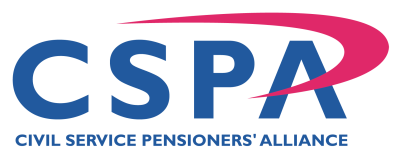Bernard Seymour of Affinity Solutions underlines the importance of setting up these essential documents. This article was first published in the June edition of The Pensioner magazine.
In my last article, I dealt with the pitfalls of DIY wills, so thought I would write about something different this time. However, for reasons I shall explain, I have decided to talk about lasting powers of attorney (LPAs).
Briefly, there are two types of LPA: finance and property; and health and welfare. Both are important and have entirely different functions. The person who makes the LPA is called the donor and the individual(s) who act on the donor’s behalf are attorneys. A donor can appoint up to four attorneys, who can act independently or jointly. The donor decides.
A finance and property LPA deals with your financial affairs and is effective once registered with the Office of the Public Guardian (OPG). A health and welfare LPA deals with your health and later life care, effective when the donor has lost capacity and the LPA is registered with the OPG.
Real-life example
The importance of an LPA was brought home to me following an accident to my neighbour’s son, whom I shall call John.
During the heavy snow and ice at the start of this year, John was visiting his parents. He went outside to clear the snow from their cars and slipped on ice, hitting his head. John suffered a brain injury and spent several weeks in hospital.
As a relatively young man, he and his partner, Joanne, had not thought about wills and LPAs. John had his own business as an electrician and all the household bills were paid from his account. Joanne was a full-time mum. The house was in John’s sole name as Joanne had moved in with him several years before and they had not got around to changing it.
As John was initially placed in a medical coma, he did not have mental capacity to manage his own affairs. Joanne could not access their money and pay the household bills as there was no financial LPA in place giving her authority to do so. The bank, although sympathetic, was unable to help.
It meant Joanne was unable to pay for basic necessities for herself and the children and had to resort to asking friends and family for loans. If John had had a financial LPA in place appointing Joanne as his attorney, she would have been able to access the account and pay the bills. Joanne’s and John’s parents did not have a good relationship.
John’s parents insisted on speaking to the medical professionals about John’s care, excluding Joanne from any discussions. And again, without a health and welfare LPA in place, Joanne was powerless.
I am pleased to report that John has made a full recovery, is home with Joanne and the children and is now looking at returning to work.
John’s accident and the consequences for Joanne highlighted to me the importance of putting in place LPAs. It is all part of life planning and goes hand in hand with making a will. Without these documents, it is those we love the most who suffer the consequences.

The CSPA works with Harvey Howell solicitors (tel: 0330 175 9959), who are able to give you professional advice on LPAs and later life planning. If you would like more information, do give them a call.
Contact Affinity Resolutions
Affinity Resolutions Affinity Resolutions offers a helpline/signposting service on legal matters, which is free to CSPA members.
The helpline is operational during normal business. To access the service the member first needs to register online www.affinityresolutions.co.uk/join/
We are aware that a number of members do not have internet access, and in those situations we will always help without registration.
The link takes members to the joining page and to our FAQs. If a member needs further advice we work with a number of organisations who can provide this.
Helpline telephone: 03300 55 25 30
Email: hello@affinityresolutions. co.uk



